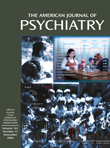Traffic Accidents and Friday the 13th
To the Editor: A recent article in the Journal by Simo Näyhä, M.D., Ph.D. (1), is of interest. However, there is clearly an error in the interpretation of the data. The national cause-of-death files of Finland provided information on deaths due to traffic accidents, but no distinction was made in the article between the day of the accident and the day of the death. It is highly likely that many of the people who died on Friday the 13th due to a traffic accident were actually injured before that day. Therefore, the main conclusion drawn in the article—namely, that women are more prone to having a fatal traffic accident on Friday the 13th than on other days of the year—may be false. On the other hand, it would still be valid to conclude from the findings that women who have been in a traffic accident are more prone to die on Friday the 13th than on other days. If so, then superstition could be having an effect on the vital bodily functions of women rather than on women’s behavior in traffic.
1. Näyhä S: Traffic deaths and superstition on Friday the 13th. Am J Psychiatry 2002; 159:2110–2111Link, Google Scholar



